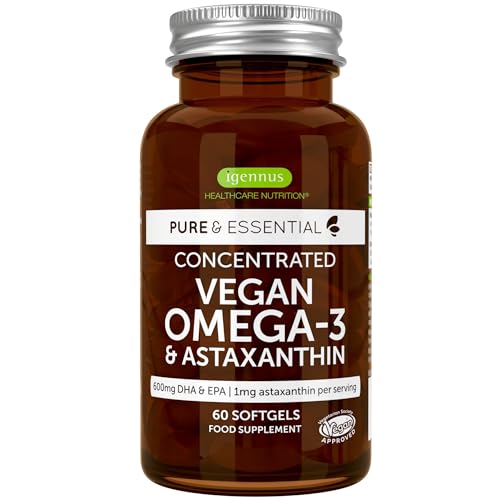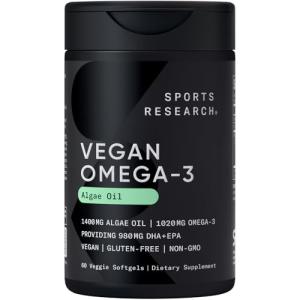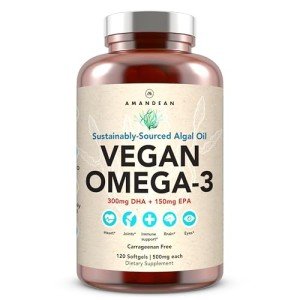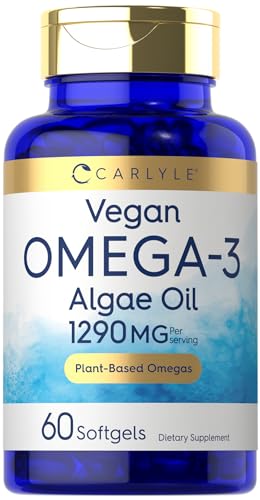When considering whether should vegan take omega 3, it's important to know that there are excellent plant-based sources of this essential fatty acid. Omega-3 fatty acids play a crucial role in heart health, brain function, and overall well-being. For vegans, the good news is that you can find omega-3s in various plant-based foods, making it easier to boost your intake without relying on fish or fish oil supplements.
One of the best sources of omega-3 for vegans is flaxseeds. These tiny seeds are packed with alpha-linolenic acid (ALA), a type of omega-3 fatty acid. You can add ground flaxseeds to smoothies, oatmeal, or baked goods for a nutritious boost. Chia seeds are another fantastic option, as they can absorb liquid and create a gel-like texture, making them perfect for puddings or as an egg substitute in vegan recipes.
Nuts also offer a delicious way to incorporate omega-3s into your diet. Walnuts are particularly rich in ALA, contributing not only to your omega-3 intake but also providing healthy fats and protein. Just a small handful of walnuts a day can help meet your daily omega-3 needs. Additionally, hemp seeds are a great addition to salads, smoothies, or yogurt, providing a nutty flavor along with a healthy dose of omega-3s.
Lastly, while many people associate omega-3s with fish, algae-based supplements are a great option for vegans looking to ensure they meet their omega-3 requirements. Algal oil, derived from algae, contains both EPA and DHA, the omega-3 fatty acids that are typically found in fish. Including a high-quality algal oil supplement in your routine can be a smart choice if you're concerned about getting enough omega-3s. So, if you're wondering should vegan take omega 3, remember that with these plant-based sources, you can easily meet your nutritional needs while maintaining a vegan lifestyle.
Benefits of Omega 3 for Vegans
Many people wonder should vegan take omega 3 supplements? This is a valid question, especially since omega 3 fatty acids are essential for maintaining good health. Unlike omega 3s found in fish, plant-based sources offer a different form of these fatty acids, primarily alpha-linolenic acid (ALA). For vegans, incorporating these omega 3 sources is crucial as they may not get enough from their diet alone.
One of the key benefits of omega 3 for vegans is its potential to support heart health. Research shows that omega 3 fatty acids can contribute to lower blood pressure, reduced cholesterol levels, and a decreased risk of heart disease. For vegans who may be concerned about heart health due to dietary restrictions, ensuring an adequate intake of ALA is important.
In addition to heart health, omega 3 can also have positive effects on brain function. Studies suggest that ALA plays a role in cognitive processes and may even help protect against age-related decline in mental function. For vegans, adding omega 3 to their diet can be a simple way to support brain health and overall well-being.
Moreover, omega 3 fatty acids are known for their anti-inflammatory properties. Inflammation is often linked to various chronic diseases, and reducing it can lead to better health outcomes. For individuals following a vegan diet, omega 3 can serve as a powerful tool in managing inflammation, particularly for those who may be more susceptible to inflammatory conditions.
Choosing the Right Supplements
When considering whether a vegan should take omega 3, it’s essential to choose the right supplements that fit their dietary needs. Omega 3 fatty acids, particularly EPA and DHA, are crucial for brain health, heart health, and reducing inflammation. While these fatty acids are commonly found in fish oil, plant-based sources such as algae oil are excellent alternatives for those adhering to a vegan lifestyle.
When selecting an omega 3 supplement, look for products specifically labeled as vegan or plant-based. Algae oil is a popular option, as it provides both DHA and EPA without the use of animal products. Always check the label for certification and purity to ensure the supplement is free from contaminants, which is especially important for maintaining overall health in a vegan diet. It's a good idea to research the brand and read reviews to find high-quality options.
In addition to omega 3 supplements, it’s beneficial to incorporate other sources of omega 3 into your diet. Foods such as flaxseeds, chia seeds, and walnuts are rich in ALA (alpha-linolenic acid), which the body can partially convert into EPA and DHA. Balancing supplements with these whole food sources can help ensure that you meet your nutritional needs. Ultimately, the decision on whether should vegan take omega 3 should be based on individual health goals and dietary habits.
Lastly, consulting with a healthcare professional or a registered dietitian can provide personalized guidance on the need for omega 3 supplements. They can help assess your specific dietary intake and recommend appropriate dosages. Understanding your nutritional requirements is key to making informed decisions about the supplements you choose.
Tips for Balanced Vegan Diet
A balanced vegan diet is essential for maintaining health and wellness. When considering nutrient intake, especially with regard to omega-3 fatty acids, it’s important to focus on a variety of plant-based foods. Incorporating a rich assortment of fruits, vegetables, whole grains, legumes, nuts, and seeds can provide the essential nutrients your body needs. Foods like flaxseeds, chia seeds, and walnuts are excellent sources of ALA (alpha-linolenic acid), a type of omega-3 fatty acid that can be particularly beneficial for those following a vegan diet.
Another way to enhance your omega-3 intake is by considering fortified foods. Many plant-based milks and yogurts are fortified with omega-3s, making it easier to meet your daily nutritional goals. Additionally, certain brands of breakfast cereals and nutrition bars may also provide these essential fatty acids. When asking yourself, "should vegan take omega 3?" remember that fortified foods can be a delicious and simple way to incorporate more of these nutrients.
Additionally, it’s wise to pay attention to your omega-6 to omega-3 ratio. While omega-6 fats are beneficial in moderation, a high intake can compete with omega-3s in the body. Keeping this balance is crucial for overall health. Opting for cooking oils like flaxseed oil or walnut oil can help shift that balance, providing a richer source of omega-3s. It’s also important to limit processed foods that may contain high levels of omega-6 fatty acids.
Finally, consider speaking with a healthcare provider or registered dietitian who specializes in vegan nutrition. They can provide personalized advice on how to achieve a well-rounded diet that meets your specific needs. Whether you're curious about whether you should vegan take omega 3 or how to balance other nutrients, professional guidance can ensure you’re on the right track to a healthy and fulfilling vegan lifestyle.




